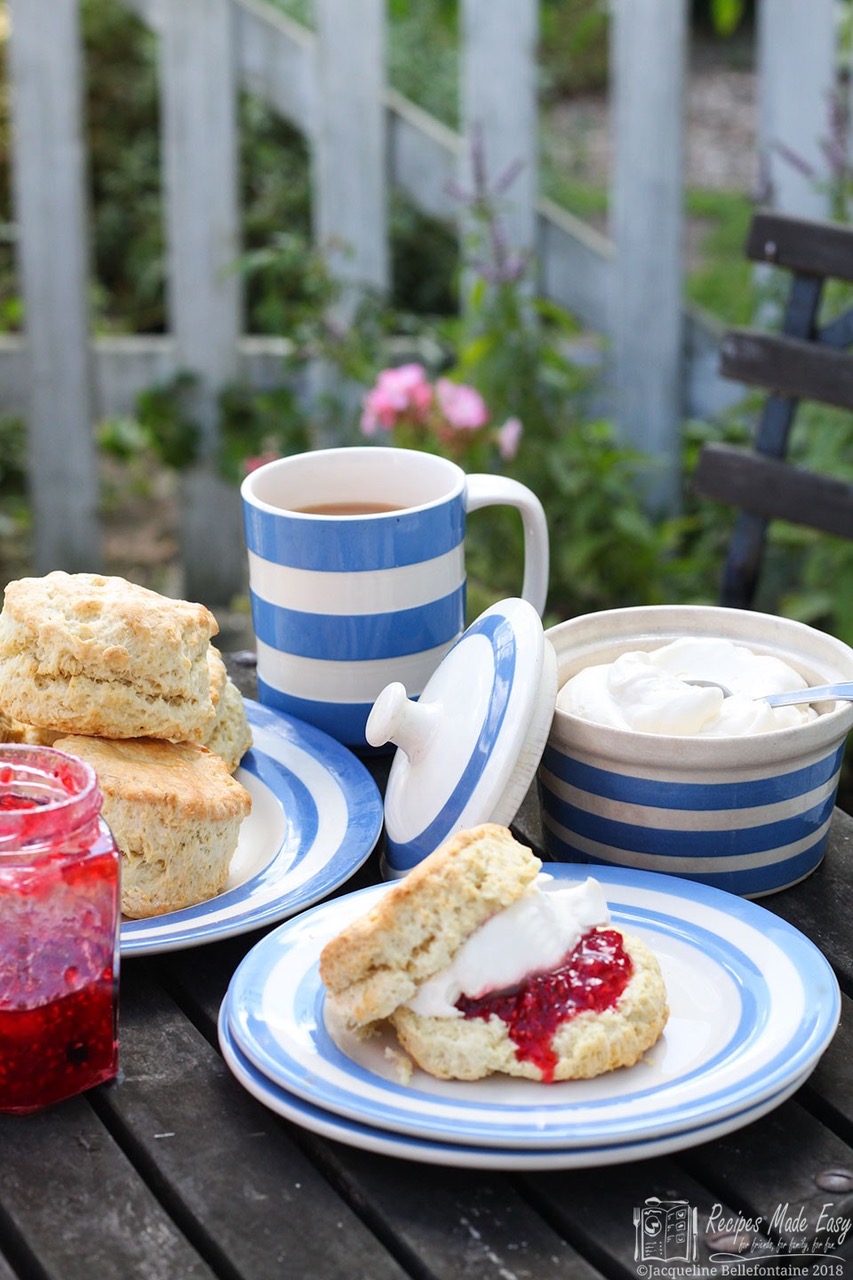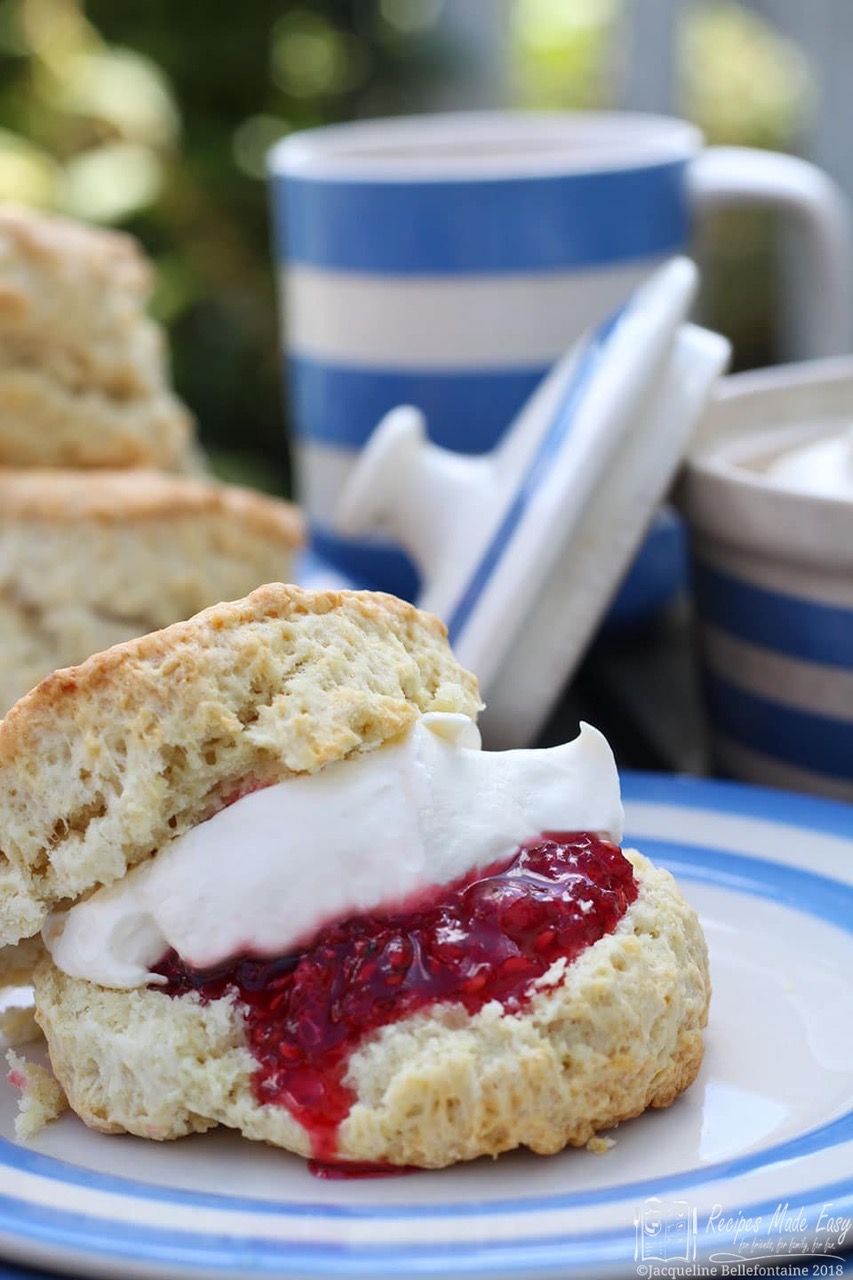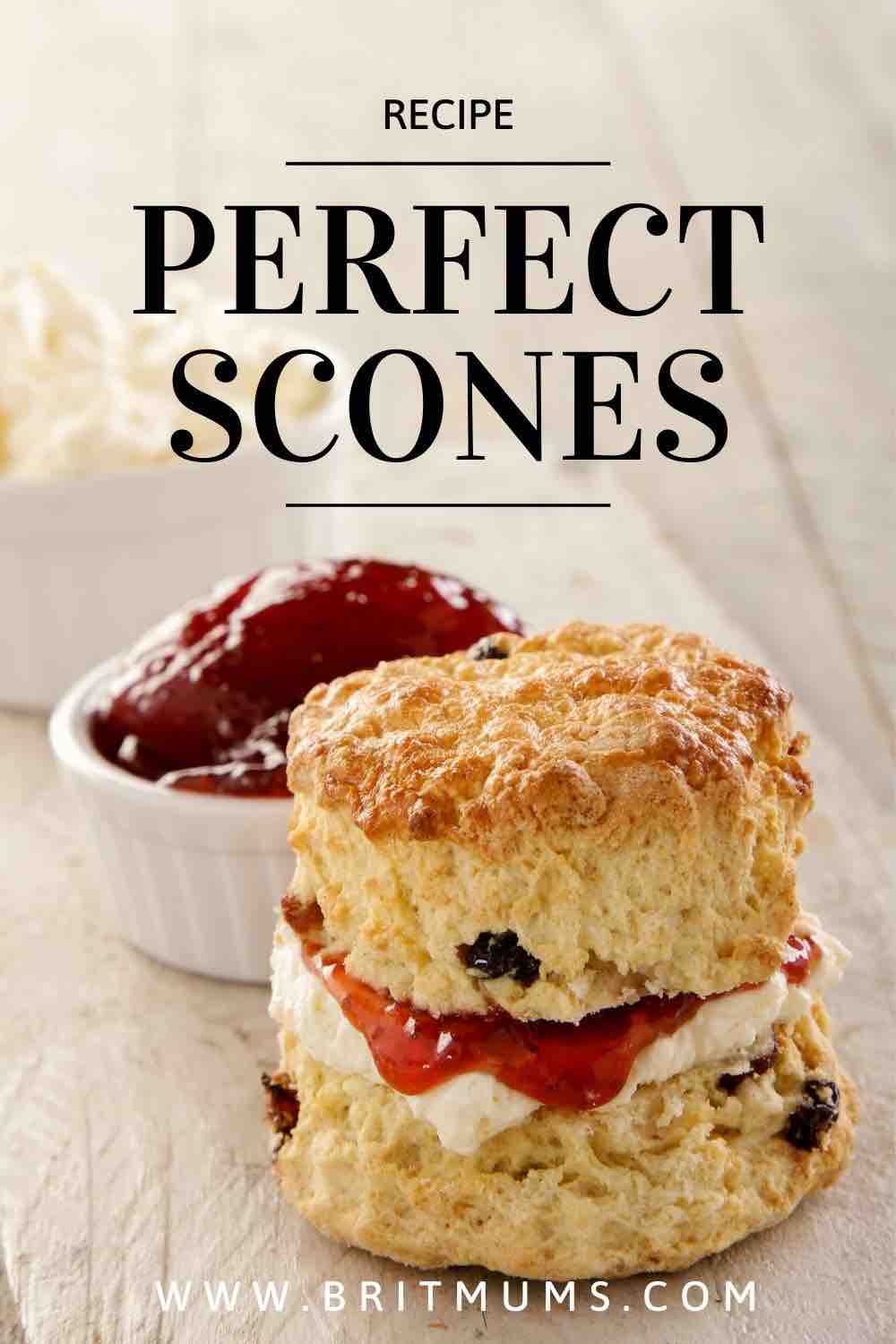One of my favourite treats is a cream tea. Light fluffy scones, topped with jam and cream served with a pot of tea is one of life’s little luxuries. It’s something to look forward to on a day trip out, but you can also make a cream tea at home and enjoy in the comfort of your own home or garden. And of course is the perfect scone. Here, I tell you how to bake the perfect scone — the cornerstone to a wonderful cream tea — plus solutions for scones that are too crumbly, too flat or too tough and some inspirational recipes.
The perfect scone
People often have so many questions: Are scones British? How are scones made? Not to mention, How do I make good scones? (More on that below!) I found this illuminating definition in Cooking Explained by Barbara Hammond, an old book of mine:
“Scone: a plain but very light cake originating from the town of Scone in Scotland. They were probably all cooked originally on a gridle but now more often baked. Scones must be eaten freshly baked or else toasted.”
So the perfect scone must have a light texture and be eaten freshly baked. No one wants a scone that is as hard as rock.

How to make the perfect scone
Raising Agent
A mixture of bicarbonate of soda and cream of tartar, or baking powder (which is a ready paired mixture of the two) are used as the raising agent in scones. Always follow the quantity in the recipe (use measuring spoons – spoon measurements should be level) and don’t be tempted to add extra as too much will leave a dry acid aftertaste.
The liquid
My Recipe for scones uses baking powder and fresh milk for convenience. But traditionally they are often made with buttermilk or soured milk with equal quantities of bicarbonate of soda and cream of tartar. The lactic acid takes the place of some of the acid in baking powder and has the advantage of softening the gluten in the flour. Hence why Clare from Wild Mamma Wild Tribe was told by her grandmother to use milk that was just ‘on the turn’. Alternatively you could add yogurt, soured cream or a squeeze of lemon juice to your milk for a similar effect.
Mixing
Scones are at their best if mixed and cooked quickly as the raising agent will start to work once the liquid has been added. Try to incorporate as much air as possible as you ‘rub in’ the butter by lifting your hands high. When adding the liquid and mixing to a dough be as gentle as possible and mix just sufficient to bring the dough together. A soft mixture will produce a better scone. Midge from The Peachicks Bakery says:
” I think the best tip is to make the dough slightly wetter than most doughs and roll out with flour on the board and rolling pin. Also a squeeze of lemon juice helps. Both seem to make the scones lighter.”
Rolling out scones
Michelle from Lost in Food
” I love scones made with buttermilk. My best tip is, do not overwork. I never roll out dough, just press down. I find rolling compacts the dough and doesn’t give the light & fluffy texture.”
Baking with Granny is another who advises putting down the rolling pin. While like Midge, I do usually use a rolling pin, I use a light one and roll very gently. This is the one time my Dad’s heavy ebony rolling pin (he was a baker) is left in the drawer. Do not keep re-rolling the dough. It is better to have imperfect looking scones that are light and tasty than heavy scones. Whichever way you choose, roll or press them out to almost as high as you want the baked scone to be and never thinner than 2cm.
When you cut your scones from the dough DO NOT twist your cookie cutter. This will twist the edges of the dough and prevent them from rising as well – another great tip from Baking with Granny.
Sometimes to save time I just pat my dough out into one large round about 2-3 cm high and then cut into wedges before baking.
Before baking
I usually brush the tops of my scones with a little milk. For a darker shiny surface, brush with a little beaten egg mixed with a splash of water.

Baking
Scones must be baked in a hot oven. They cook quickly, so remember to preheat the oven first.
What Went Wrong?
Heavy close texture, or ‘Why are my scones hard?’:
- Usually due to over handling
- Too little raising agent
- Mixture too wet or too dry
- Oven not hot enough
Unevenly risen / flat, or ‘Why don’t my scones rise?’
- Uneven pressure when rolling
- Badly kneaded
Spread or loss of shape, aka ‘Why do my scones spread?’
Mixture too wet
- Twisting cutter when cutting scone out
- Baking tray over greased
Too Pale
- Oven temperature too low
- Unglazed top
- Baked too low in the oven
How do you eat the perfect scones?
Scones are traditionally served at teatime and should be served as fresh as possible. As I mentioned before, if you can’t eat these fresh from the oven, have them toasted and warm. When it comes to plain sweet scones for a cream tea, I will leave it up to you whether you put the cream then jam or jam then cream.
But now that you know how to make the perfect scone, you may also want to try your hand at one of these sweet or savoury variations.

Check out our favourite scone recipes!
19 of our favourite scone recipes
More delicious easy baking recipes
33 things to bake for an afternoon tea menu
30 great recipes for baking with kids
Bloggers share 50 baking blunders & tips

About Jacqueline Bellefontaine
Jacqueline has been a cookery writer and food stylist for over 20 years and is a member of the Guild of Food Writers. She is the author of 18 cookbooks and now writes her own blog, where she shares the recipes she cooks at home for family, friends and fun. Jacqueline started her food writing career on a weekly magazine and as a result, likes to champion good basic home cooking. The daughter of a master baker she is passionate about home baking and is happiest in the kitchen knocking up a cake or baking a loaf of bread. Jacqueline has two grown sons and lives with her husband in Central London.
- Web |
- More Posts(14)


Lynda Christen
Saturday 27th of February 2021
I am interested in good scone recipes mainly I love baking.
Jennifer Howze
Tuesday 2nd of March 2021
We love them especially in the afternoon as a treat with tea.
Nadine Hill
Monday 20th of August 2018
I have to say you can't beat a sweet scone with jam and cream! The highlight for me of an afternoon tea!!!
Emilie
Tuesday 31st of July 2018
This looks divine! I can’t wait to try some of these recipes! ❤️❤️